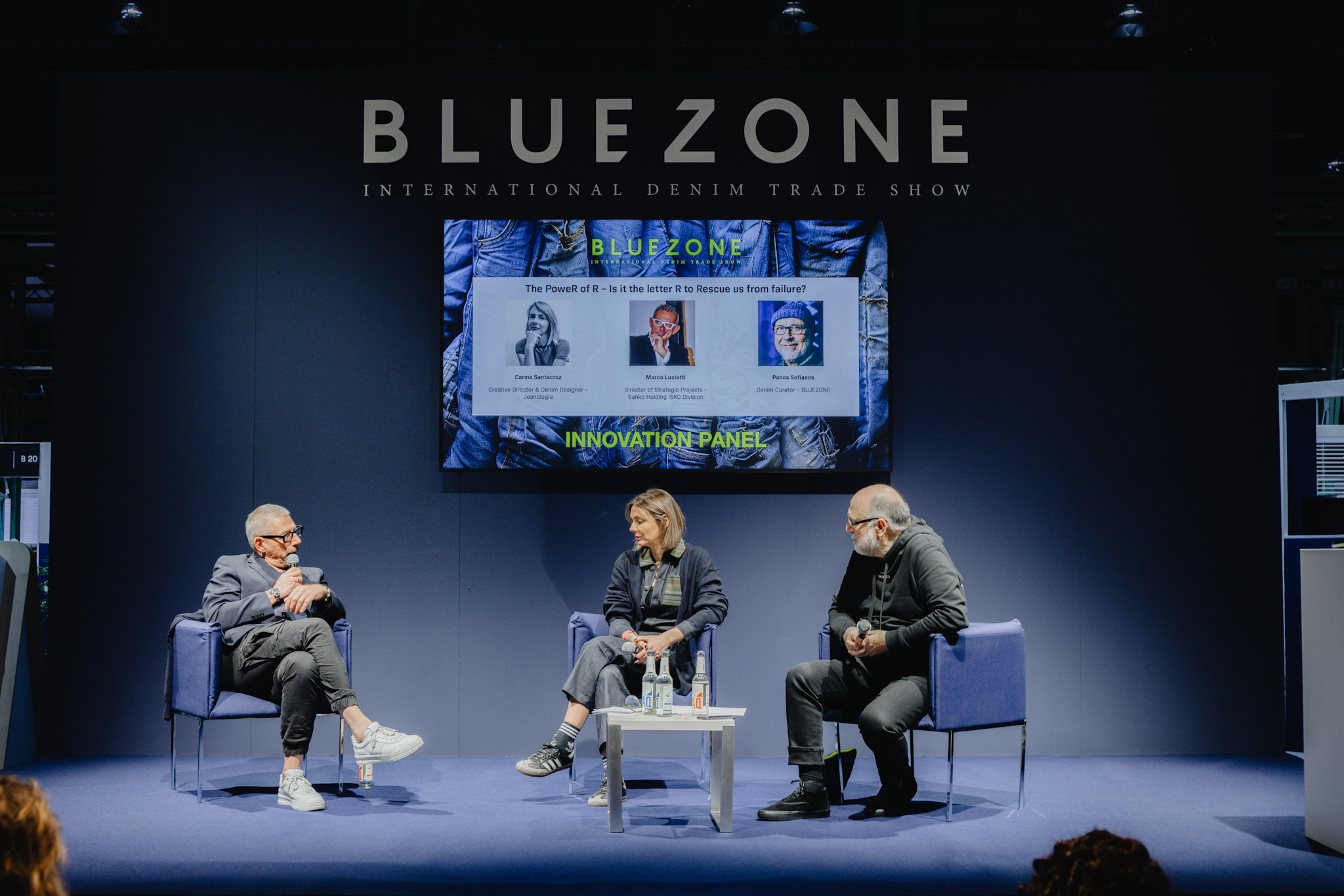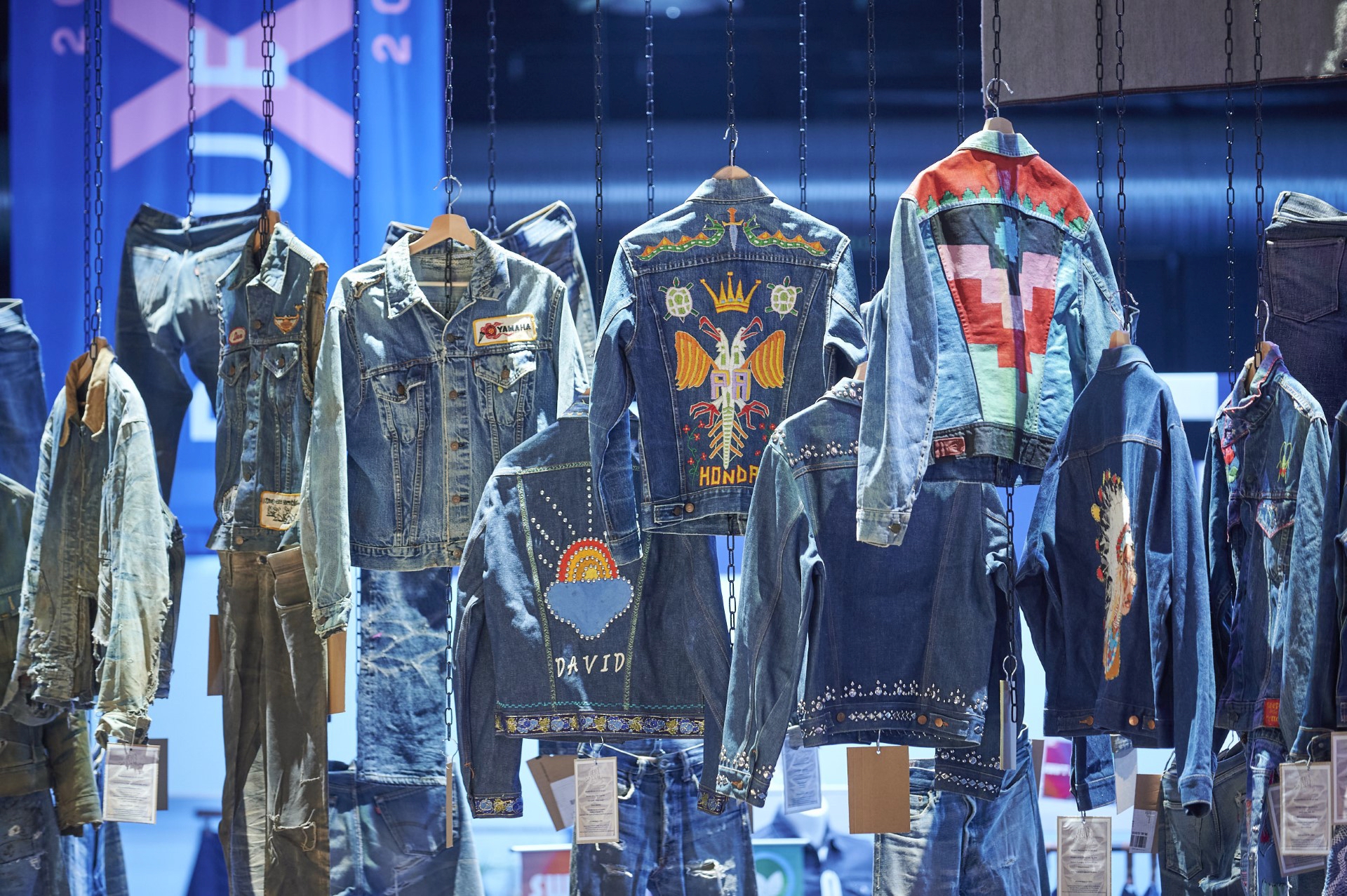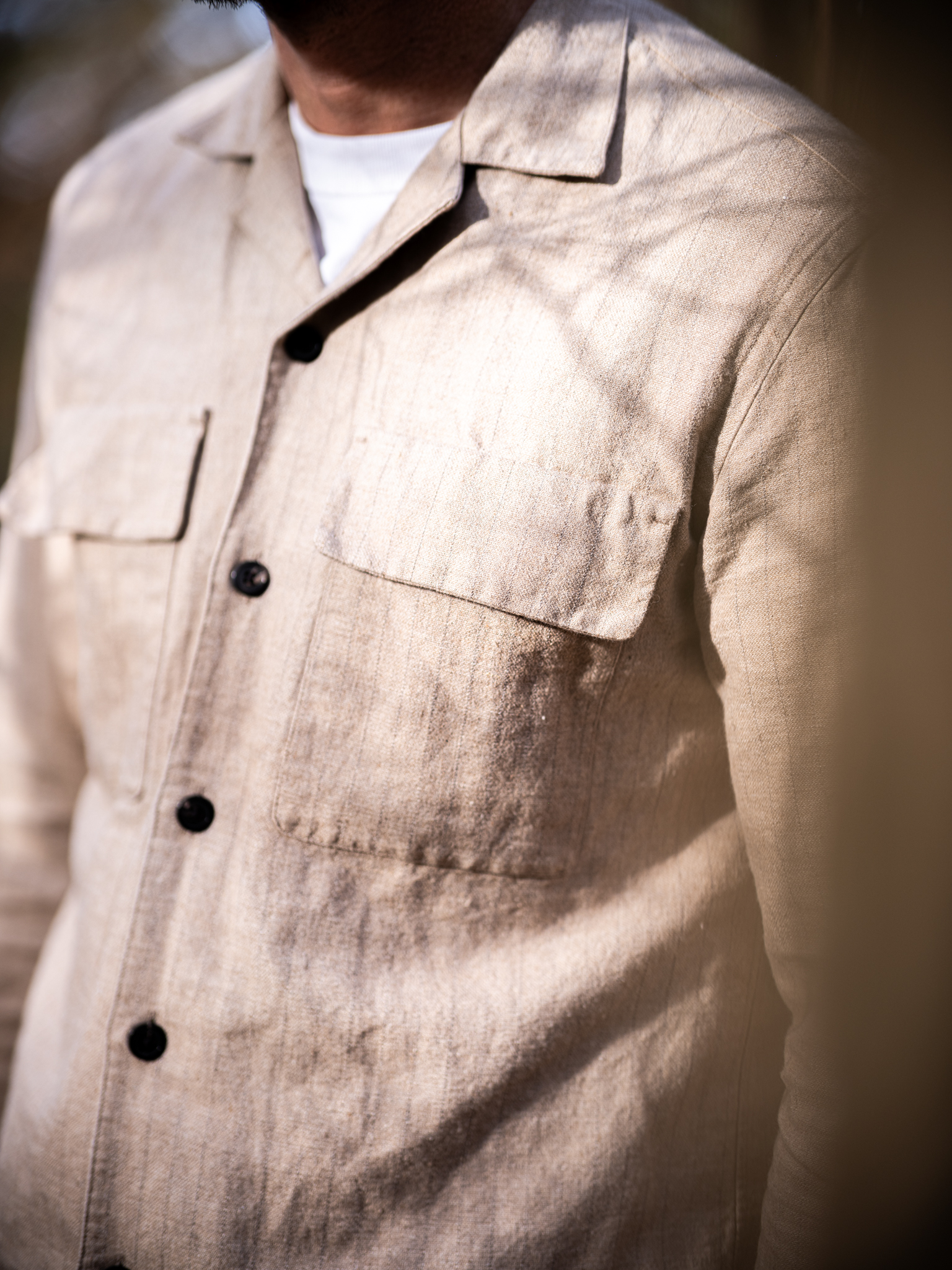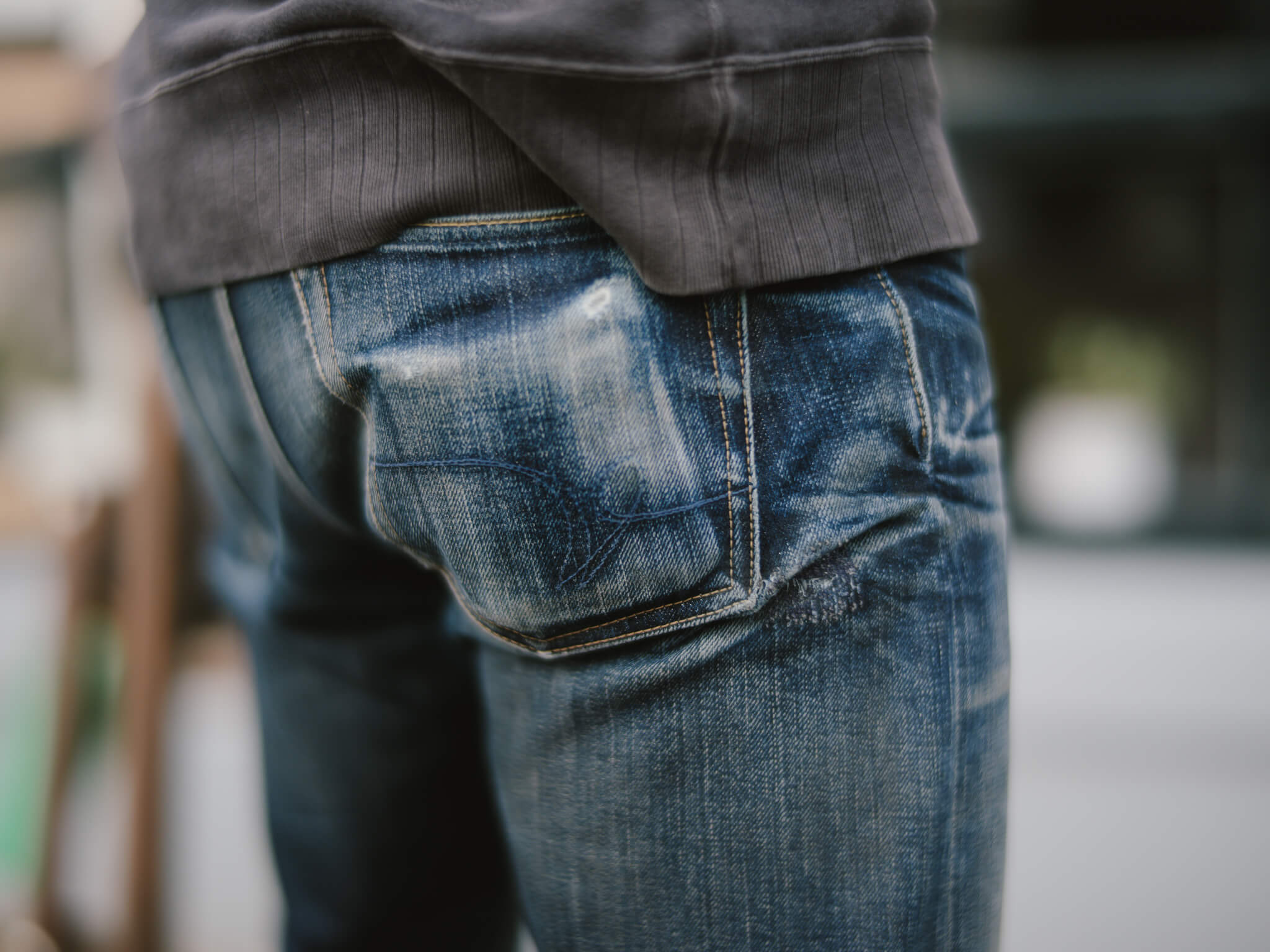A Conversation With Taka Okabe of Clutch and Allevol
By @rugged_style
We’ve said this before and we’ll say it again: what makes this industry great, is it’s community. We continue to be inspired by people doing great things and their willingness to share their experiences, knowledge and skills with others. One such person is Taka Okabe.
Some of you will be familiar with Taka through his work at Clutch Cafe Magazine, the Japanese powerhouse of heritage style. Taka is also responsible for London’s Clutch Cafe, where he works as Managing Director and is responsible (along with his all-star team) for creating one of the best retail experiences in London, for those interested in the best denim and menswear the world has to offer.
What some of you may not know is that Taka also runs his own brand (along with his wife) under the name Allevol. From denim to outerwear and elevated basics, Allevol represents all the things we love about well-made garments. With production in Japan and the UK, Allevol is heavily inspired by the past but fit for the present day (and beyond).
Taka’s story originates in Fukuoka, Japan, and he was kind enough to sit down with us and talk about his journey in the industry. Keep reading to find out more and familiarise yourself with one of the most humble and sincere guys in the industry. Arigato Taka-san!
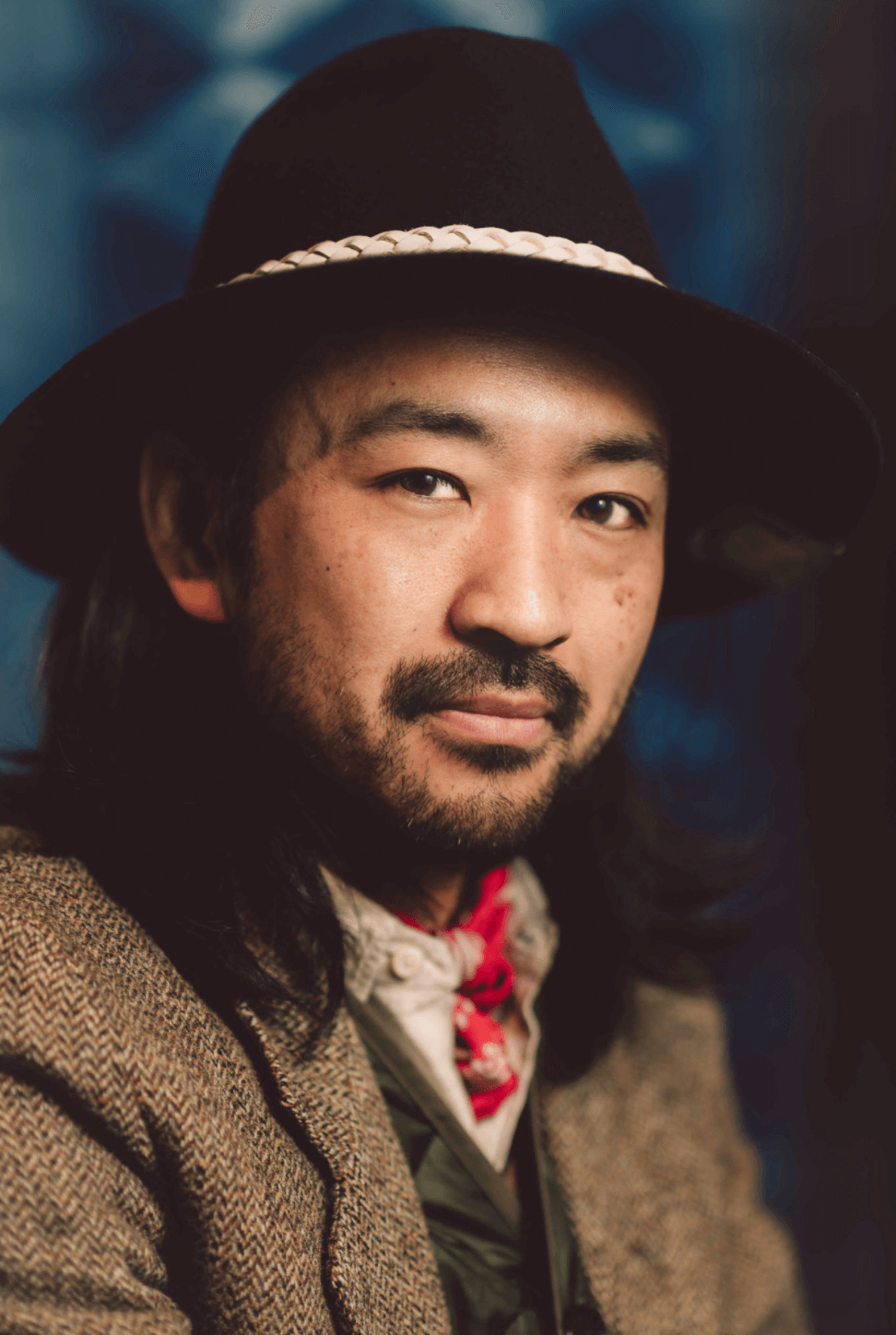 Photo via: Denimhunters
Photo via: Denimhunters
Robin Denim (RD): Thanks for taking the time to join us Taka – Please could you take a moment to introduce yourself and what your current role(s) are?
Takashi Okabe (TO): Thank you for having me and I am super excited to join you guys at Robin Denim, as I’ve been following you for a number of years. I have various roles that I’m extremely lucky to be a part of. I’m fortunate that all the work I’m involved in is something that I’m very passionate about.
Firstly, I am the Director of Clutch Cafe in London. Mr Matsushima / Atsu-san – Editor in Chief of Clutch Magazine – and I set up the store in Central London 3 years ago. Secondly, I work as the Tokyo Editor of Men’s File Magazine, which is run by Nick Clements. Nick has been an inspiration to me for the last 10 years and has been a big part of the revival movement. Thirdly, I am a co-founder of the clothing label Allevol, which my wife and I set up in 2005. I also work for Lightning Magazine, 2nd Magazine, and other publications – taking photos and writing etc.
RD: Can you tell us about your upbringing in Fukuoka, Japan?
TO: I was born and bred in Fukuoka. It is one of the best cities in the world; this isn’t just my opinion, it is normally in the top 20 cities according to Monocle! I had a pretty normal life there; hard working dad, housewife mom, younger sister and brother, playing football competitively from a young age etc.
RD: You were inspired by vintage American clothing at an early age – how did you come into contact with vintage and what was it that inspired you?
TO: There was a legendary American clothing store called Miyar’s (now known as Happy Hunting Clothing) in Sumiyoshi, Fukuoka. It was only 5 minutes walking distance from my home. Apparently, Mr Yasuhiro Mihara (who is a great designer) was also visiting there at the same time…Anyway, Mr Sakamoto – the owner of the store – kindly introduced to me to American culture. From the Hollywood films in the 50s and 60s, music, and pop/youth culture of 70s/80s/90s. That’s how I came face-to-face with Americana goods in my life and without that store, I don’t think I would be where I am today.
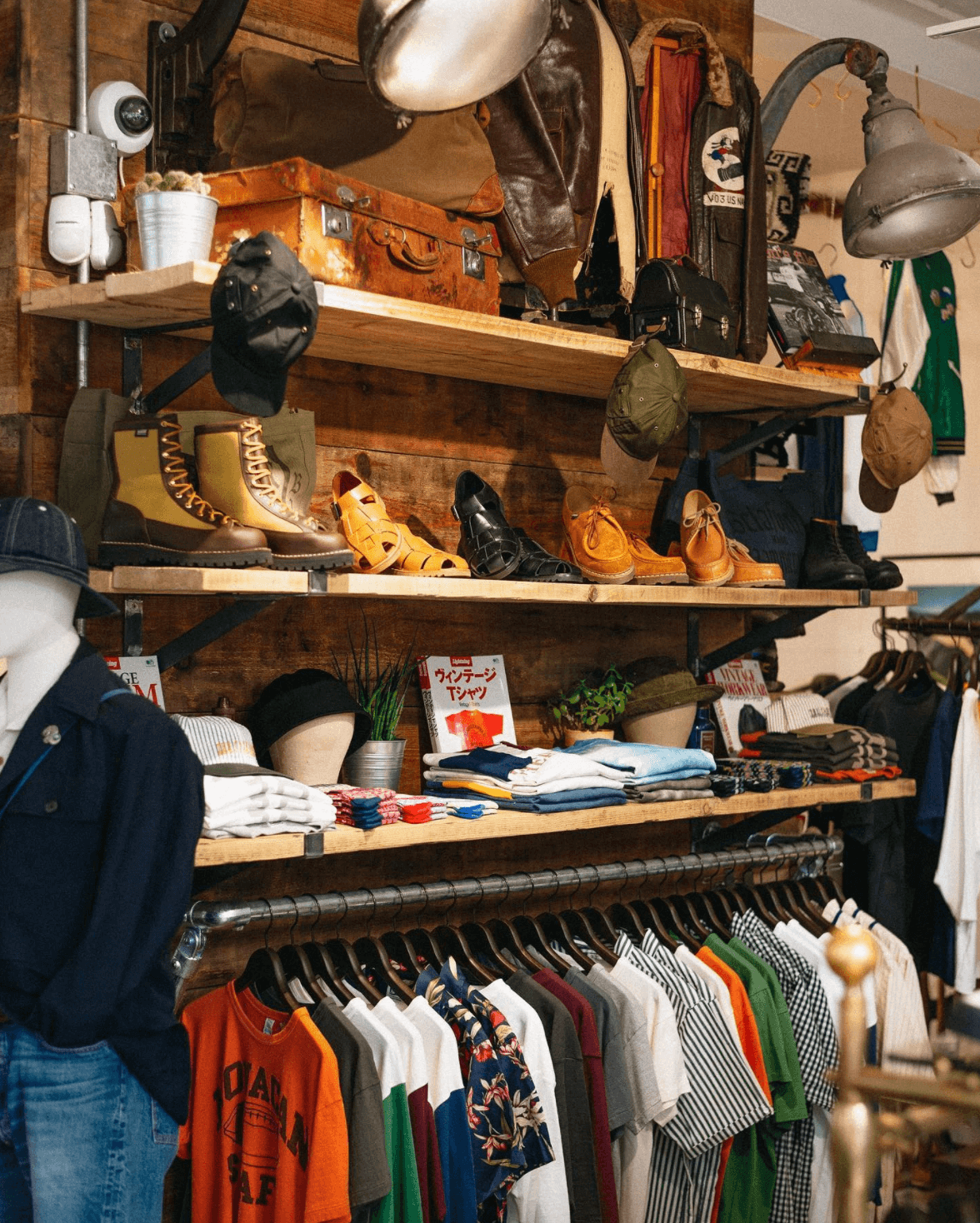 Image via: Heimat Textile
Image via: Heimat Textile
RD: What are some of your favourite things about menswear and clothing, given that you’ve spent so long in the industry and collecting vintage clothing?
TO: In terms of products/goods? I am now very much into British and European vintage clothing. I think it’s because I’ve lived in UK for over 20 years and started to understand some of the beautiful things that were designed and made in Europe during the late nineteenth and early twentieth centuries.
If you carefully select vintage pieces, you can pretty much style them well with any clothing, furniture or objects in your home. I just enjoy seeing well designed, well made and considered items.
Some of my favourite things are in Clutch Cafe where I work. The brands that we deal with have great knowledge in manufacturing and design, it is a joy to work with them. We aim to curate and offer a great selection of clothing and lifestyle products through the store, and it’s really enjoyable!
RD: You have been working as Director of Clutch Cafe in London since its opening in 2018. Tell us more about the store and your role there?
TO: Clutch Cafe is a spin off project from Clutch Magazine, which is kind of known as the bible of ‘Heritage fashion’. Clutch Magazine focuses on the core value of what was in the past (mostly pre-1940’S) and how we can bring that value back to the modern world. We love vintage jeans, old cars, bikes; it’s kind of a vintage lifestyle magazine.
The editor in Chief of the Magazine – Atsu-san – always wanted to have a concept store showcasing what we believe in. We’ve been open for a few years now and I hope to welcome more people to visit the store once the COVID-19 restrictions come to an end. That’s the easiest way to get a feel of what we do and the products we offer.
My role has always been as a bridge between the UK/Europe and Japan. As I’ve lived in the UK for more than 20 years now, I understand the culture of both the UK and Japan. So, I could say that I act as a facilitator and intermediary in fashion, culture, business etc.
RD: Japanese magazines like Clutch (Lightning, 2nd etc.) have had a huge impact on casual menswear in the UK and Europe during the last ten years. Why do you think this is?
I think it’s because of the internet – people started to notice what’s available out there and what’s happening on the other side of the world, through forums, websites, blogs, Twitter, Tumblr etc. But please let me explain a little further…
Japanese magazines (any titles in fashion, hobbies, anime, or novels etc) were always available to purchase in major cities around the world from the 1970s onward. This is as a result of the Japanese economic revolution following the Second World War where many Japanese companies started exporting goods outside of Japan. Europe was Japan’s second biggest exporting area after the USA and many Japanese businessmen or expats lived in those countries.
There were a few Japanese books stores to cater for those Japanese people who lived in major cities (for instance, there used to be a Japanese book store called JP Books in Central London) and that’s when European / American guys noticed what Japanese fashion was and we (Japanese people) started noticing foreign brands, and started buying into European brands in 70s, 80s, and 90s.
I think the first wave of fashion that crossed those borders were brands and designers like Kenzo, Issey Miyake, Michiko Koshino, etc. Then it grew to include Nigel Cabourn, Nick Ashley, and Margaret Howell, who all had great sales in Japan during the 80s/90s. Meanwhile Comme Des Garcons and Yohji Yamamoto were doing very well in Europe. This was probably the second wave. Following this, for me, the third wave was 90s streetwear and the internet began to kick in.
And thanks to the Internet, people who were very much into more niche fashions or hobbies, really started paying attention to more craft base, independent and well-made products.
With all that being said, I think it is one of the main reasons titles like Lightning & 2nd Magazine got picked up and people began to look at them for inspiration and ideas, is that they’ve always shared the same ideals of quality and this was something which was new and fresh to the menswear scene(s) in the UK and Europe at those times. You could say it’s a progression of fashion, or a de-centralisation of fashion as a result of the Internet?
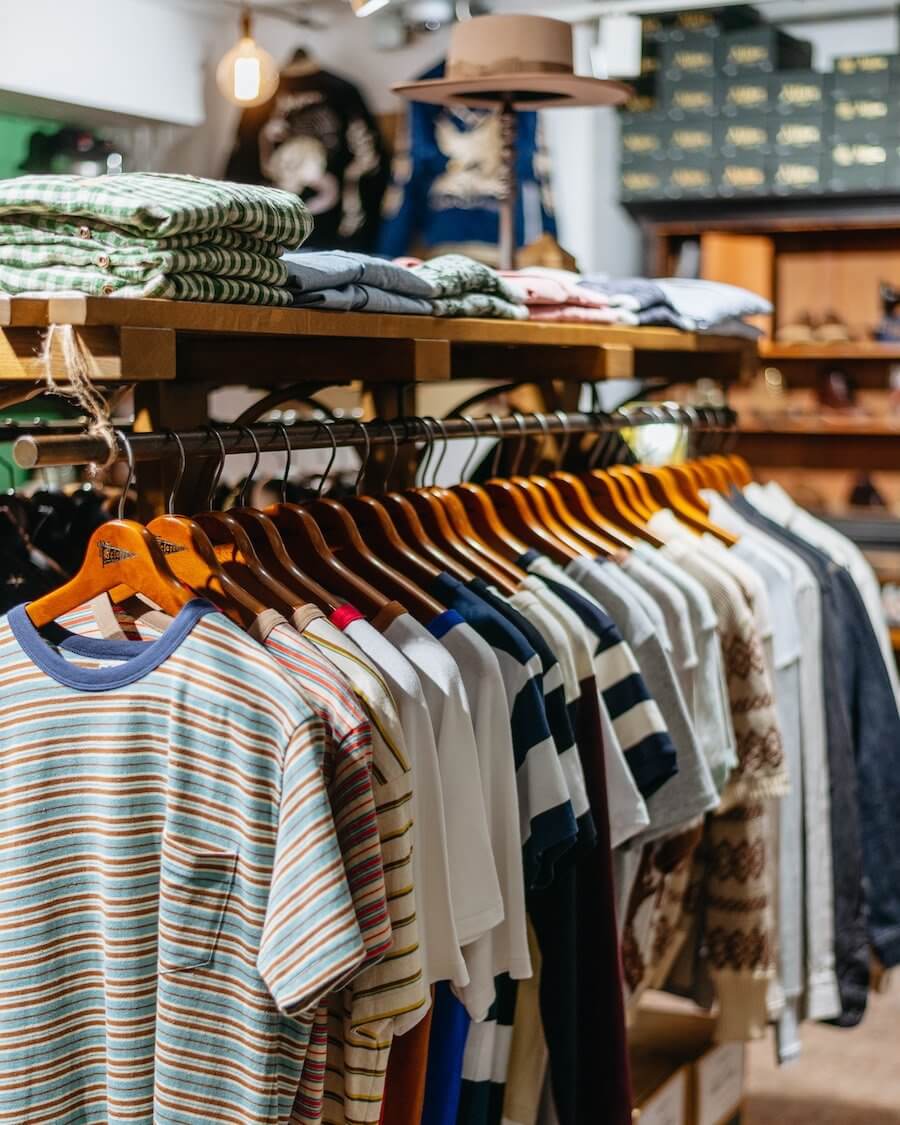 Image via: Permanent Style
Image via: Permanent Style
RD: Denim is strongly featured in both Clutch Magazine and Clutch Cafe. What does denim mean to you and what do you like about it?
TO: It’s really hard to answer this question! But as a general rule, there are 3 things I really like; denim, leather, and certain metals. What’s common for those three things is that they get better when used and with time. Certain metals like brass, bronze, iron or silver, when they are tarnished, I find that to be beautiful. The same can be said to denim or leather. When denim fades or when leather softens, that’s something I simply find to be beautiful. And of course, all the cool guys were wearing denim and leather jackets in the Hollywood films…
RD: Do you have a favourite pair of jeans, both vintage and new?
TO: I like Levi’s XX or anything that uses those soft buttered fabrics from the 1910s -1950s. In terms of newer product, I am very much interested in Jelado’s “Age of Longing” denim series. They have seriously studied and picked apart Levi’s XX fabric made during the 1950s and then replicated it. It has become a favourite for staff at Clutch Cafe!
RD: What do you think makes Japanese denim particularly special?
TO: Fabric mills and the skillset of Japanese factories.
RD: You founded your own brand Allevol in 2005, with an initial focus on raw denim and later outerwear. Tell us more about Allevol and your plans for the future?
TO: I have said this on numerous occasions to the people around me – and myself – over the last 10 years, that I will re-start and make new products. 2020 was actually a good year for me personally, as I spend time re-focusing and figure out what I really wanted to do with my brand for the next 30 years. I will start by re-introducing many products in 2021, so I will keep you updated! To start with, I’m making heavy-duty circular knit t-shirts. I’d been looking for high quality, heavy-duty and well constructed t-shirts for a while. I now have something which ticks all the boxes and that I’m very proud of!
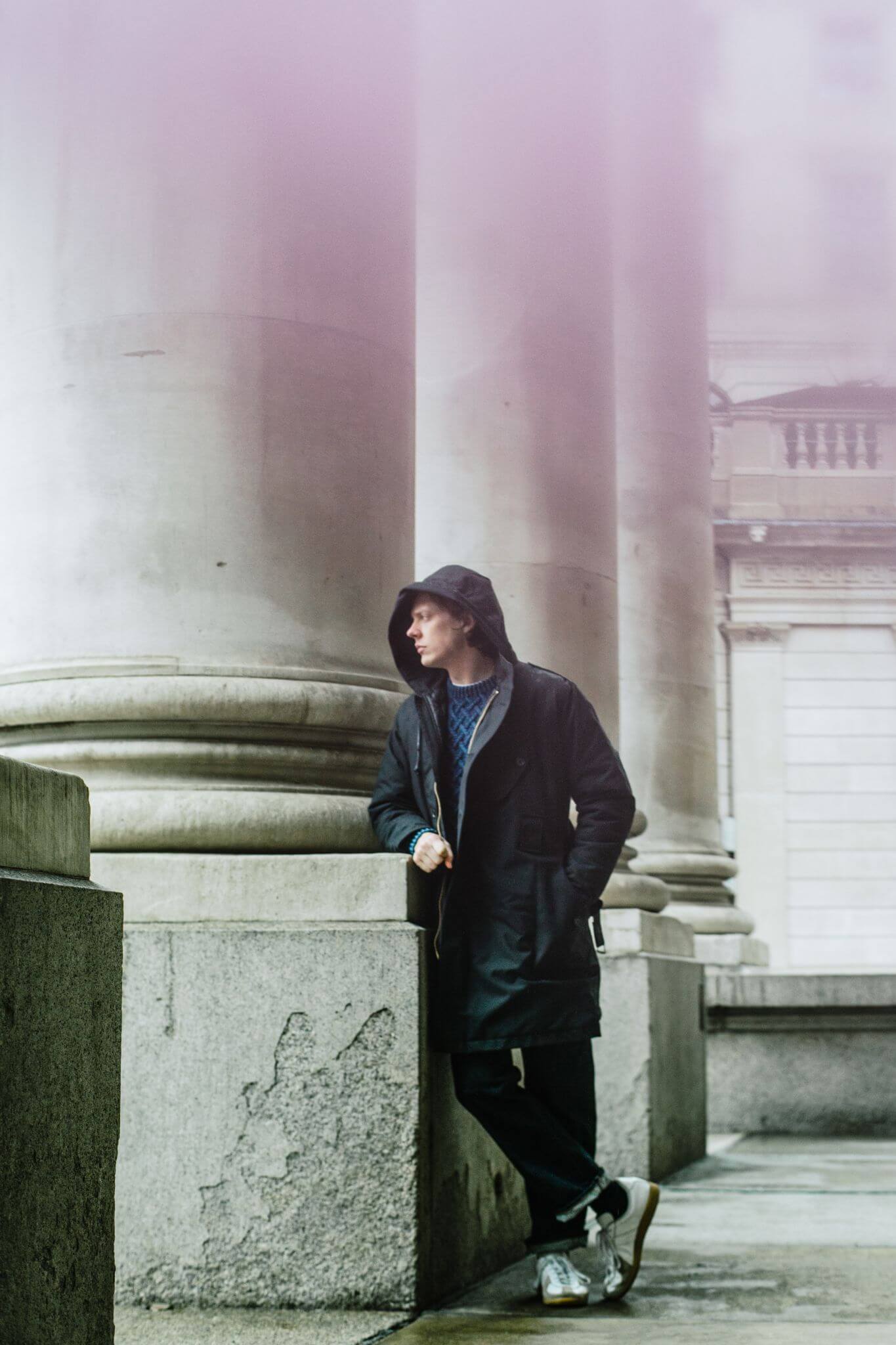 Photo via: Allevol
Photo via: Allevol
RD: It’s been a crazy 12 months worldwide, but we’re optimistic for 2021. What are you looking forward to the most when things become more normal?
TO: I’m not expecting things to go back to normal so soon. But, as a retail store in the UK we will be able to re-open soon. I would love to welcome anyone who wants to visit Clutch Cafe. Whether that is to talk, shop, or just drink coffee! The store is a Mecca for people who lovewell-crafted denim, leather and lifestyle goods.Also, this may not be anything special, but I would love to have a nice pint of beer in a pub!
RD: We’re going to be talking again soon about Allevol, but do you have any parting words for our readers? Anything or anyone they should go check out?
TO: I think 2020 will be remembered as a crazy year, but I think we have experienced something unique (we’re now all equipped with a new set of Zoom meeting skills!) but honestly and joking aside, I just hope that 2021, and onwards, will be good for everyone.
You can follow Taka on Instagram here, visit the Clutch Cafe store and keep an eye on the latest developments with Allevol here.
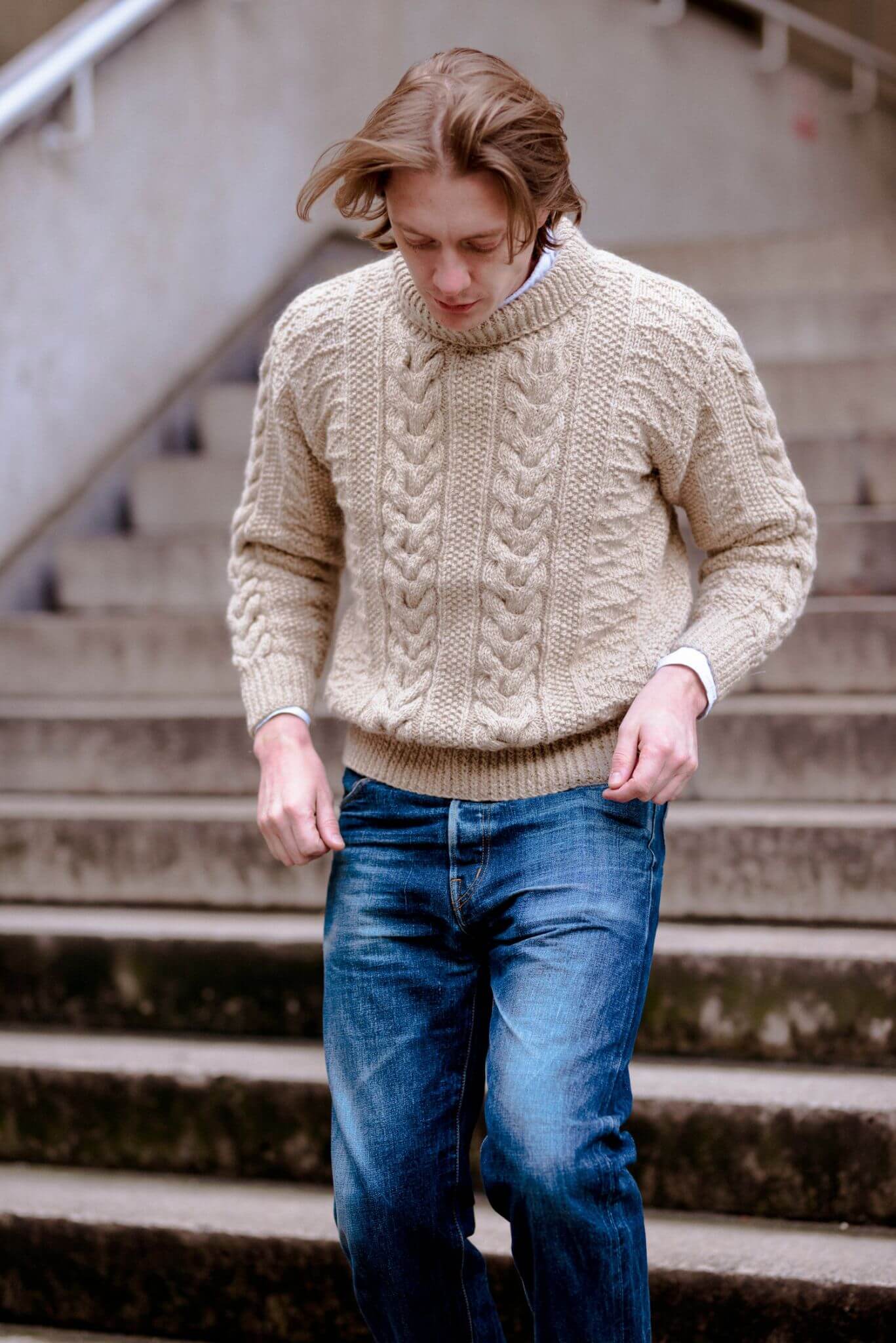 Photo via: Allevol
Photo via: Allevol
 Share
Share
 Tweet
Tweet
